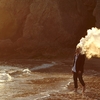Cancer patients can develop an aversion to foods they eat right before undergoing chemotherapy. Although the foods themselves do not initially cause feelings of illness, pairing them with chemotherapy, which does cause patients to feel sick, leads to the foods becoming associated with these same feelings. This is an example of:
A) classical conditioning. C) the law of effect.
B) instrumental conditioning. D) extinction.
Answers (1)
Know the Answer?
Not Sure About the Answer?
Find an answer to your question 👍 “Cancer patients can develop an aversion to foods they eat right before undergoing chemotherapy. Although the foods themselves do not ...” in 📗 Social Studies if the answers seem to be not correct or there’s no answer. Try a smart search to find answers to similar questions.
Search for Other Answers
You Might be Interested in
Why did Neolithic people decorate pottery and polish stone
Answers (2)
Who were the first Europeans to land in the New World?
Answers (1)
Propose four ways in which the government can ensure that Road accident fund benefits are given to deserving beneficiaries
Answers (1)
Summary of Gibbons v. Ogden
Answers (1)
How many yards are you running if you do suicides on a football field?
Answers (1)
New Questions in Social Studies
Shays' Rebellion of 1786 was significant because it
Answers (1)
Two reasons why congress gives federal agencies policy-making discretion in executing federal laws
Answers (1)
How is sleet different from freezing rain
Answers (2)
What is the the treaty of Guadalupe Hidalgo
Answers (1)
Complete a written response (1-2 paragraphs) to the following question. What did the Ancient River Valley Civilizations have in common?
Answers (1)

